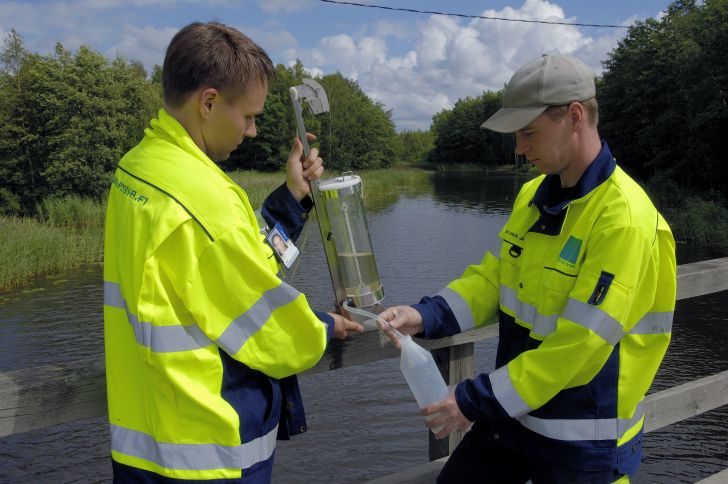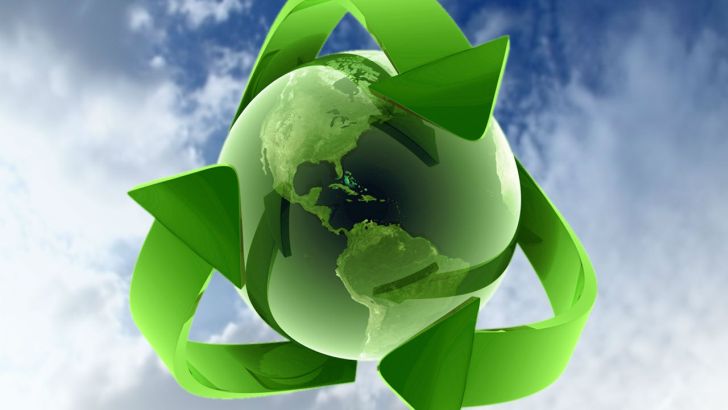Environmental Research Grants – If you are currently studying or working on the subject of environmental issues, you may need a lot of money to conduct a research, thus the need of environmental research grants. As everyone in the field knows, the cost for an environmental research could be really high, as it will need some preparation, expensive tools and process as well to hire human resources to ensure the quality of the research. There is unlikely to researcher or student to pay for all the research expenses by him/her so they have to look for the funding somewhere else.
Fortunately the government as well as various private institutions which focus on the environmental issue acknowledged this issue. Therefore, they provide thousands of environmental research grants to help the researcher for the funding. The environmental research grants are offered for various projects from pollution prevention to children’s health, waste management or pollution level research.
Environmental Research Grants Provider
Here we will provide you information regarding where and how the steps to get the grant. Like we said before there are a lot of grants from both government-funded agency and institution that offer the environmental research grants here are some of them:
EREF or the Environmental Research and Education Foundation
The agency provides private grant for research concerning on solid waste management or education. The research grant related with solid waste management and education to increased community awareness offered by the EREF research council is in line with its research agenda which is decided annually.
There are two windows to join the research grant proposal each year for the grants ranges from $15,000 to $500,000. For further information about this research grant you can visit the organization’s website.
NCER or the National Center for Environmental Research
A government institution under Environment Protection Agency of the U.S offer environmental research grants named STAR program. The program provides the grant for research related to environmental issues such as pollution prevention, children’s health and drinking water.
The program is quite popular among environmental researcher as the NCER agency receives around 2,000 to 2,500 research proposal every year. From such number the agency granted 150 research grants for the selected proposals. The grant is available every year and you have to submit a complete request proposal to be considered as an applicant.
Office of Science of the U.S. Department of Energy
The organization is also offering grant for environmental research. The office of science grants are literary open for everyone from individuals, local or state government, for profit organizations, non-profit organizations, colleges and students all are invited to propose for these grants.
The grants are awarded for projects related to biological and environmental research, climate and environmental sciences, biological system science, basic energy science, computing programs, and network environment research. These grants are awarded annually and you should submit a complete application proposal to the Office of Science in order to compete for the grants.
Like we say before there are a lot of environmental research grants available that you can get with some effort, for further information you can visit each agency’ respective website or the www.grants.gov.
Indigenous Environmental Grants – Canada
Indigenous Environmental Grants in Canada are pivotal in empowering Indigenous communities to lead conservation efforts that honor their traditional knowledge and cultural practices. These grants support a diverse array of projects, including water conservation, habitat restoration, and sustainable land management. By incorporating Indigenous perspectives and methods, these initiatives not only improve environmental outcomes but also reinforce the cultural connections and sovereignty of Indigenous Peoples over their ancestral lands.
A notable example is in Alberta, where Indigenous-led projects successfully merge traditional knowledge with modern conservation strategies to safeguard water resources and biodiversity. These projects often include educational elements aimed at passing valuable knowledge and practices to younger generations and the wider community. Additionally, Indigenous involvement in international environmental discussions highlights the significance of their leadership in global conservation efforts.
The essence of these grants is in acknowledging the deep relationship between Indigenous Peoples and the natural world. They fund projects related to Indigenous communities, these grants ensure active participation and meaningful engagement in environmental stewardship. This approach not only respects Indigenous sovereignty but also integrates centuries of knowledge and experience into conservation practices.
Through Indigenous Environmental Grants, Canada recognizes the essential role of Indigenous Peoples in tackling environmental issues. The grants provide the resources needed for these projects, fostering a more inclusive and effective conservation strategy. This not only benefits the environment but also supports Indigenous communities, paving the way for a sustainable future that honors both people and the planet.
22nd Annual P3 Awards
The 22nd Annual P3 Awards is a national student design competition that invites applications from teams of undergraduate and graduate students. This competition emphasizes the use of scientific principles to develop innovative technology-based projects that address three key goals: improving quality of life, fostering economic prosperity, and ensuring environmental protection.
Participants need to focus on specific areas including:
- Clean and Healthy Air: Projects that aim to enhance air quality and promote healthy living environments.
- Clean and Safe Water: Initiatives designed to ensure access to clean and safe drinking water.
- Safeguard and Revitalize Communities: Solutions that work to protect and rejuvenate communities, improving overall well-being.
- Safety of Chemicals: Efforts to manage and mitigate the risks associated with chemical use and exposure.
By addressing these critical areas, the P3 Awards competition seeks to promote sustainable development and create practical solutions that benefit both people and the planet.
Ecological Risk and Impact of UV Filters in Sunscreens on Aquatic Ecosystems
The upcoming funding opportunity invites proposals for research into the ecological risks and impacts of UV filters in sunscreens on aquatic ecosystems. This initiative focuses on several key areas of study.
Firstly, the research will examine the effects of UV filters on both freshwater and marine organisms. Understanding how these chemicals influence various forms of aquatic life is essential for assessing their impact on ecosystem health. Researchers will investigate how UV filters can harm different species and the overall well-being of aquatic environments.
Secondly, the opportunity emphasizes advancements in analytical methods. Proposals should aim to develop new or improved techniques for detecting and quantifying UV filters in saltwater. Effective measurement of these substances is crucial for determining the extent of their presence and potential contamination in marine settings.
Lastly, the initiative seeks innovative approaches to evaluating ecological risk. This includes the development of novel metrics and modeling strategies to better understand and manage the environmental risks associated with UV filters. The goal is to support sustainable decision-making. It provides detailed insights into the potential ecological impacts and risks of these chemicals.
By addressing these areas, the funding opportunity aims to enhance our understanding of UV filters’ effects on aquatic ecosystems. Besides, it promotes informed and sustainable practices for managing environmental risks. Applications will be accepted soon, offering researchers a chance to contribute to this important field of study.
The STAG Program
The STAG Program is launching a funding opportunity focused on Enhanced Aquifer Recharge (EAR) for sole source aquifers. This initiative is to support research and implementation efforts aimed at improving groundwater management in rural areas.
The program seeks to assist local governments, universities, Tribes, and other water-related institutions. The organizations will fund projects that advance the planning and application of EAR techniques. Sole source aquifers provide the primary source of drinking water for a community. Therefore, it is an important project to protect and manage effectively.
Research supported by this funding will focus on developing and implementing strategies to enhance the natural replenishment of these critical water sources. This includes evaluating and improving methods for increasing groundwater recharge, ensuring that the techniques used are both effective and sustainable.
By targeting rural areas, the STAG Program aims to address unique challenges faced by communities. Especially related to sole source aquifers for water needs. The goal is to promote more resilient and sustainable groundwater management practices. So, it can safeguard these vital resources for future generations.
The opportunity invites proposals that can contribute to a better understanding and execution of EAR strategies. Thus, helping to secure clean and reliable water supplies in regions that depend on sole source aquifers.
Conclusion
In conclusion, securing funding through environmental research grants is crucial for advancing our understanding and management of environmental issues. These grants not only alleviate the financial burden on researchers and students but also foster innovative solutions to critical problems. For example, how to deal with pollution, waste management, and conservation.
Programs such as the Environmental Research and Education Foundation (EREF) and the National Center for Environmental Research (NCER) provide essential financial support. They support any projects that address a wide range of environmental challenges. By offering grants for solid waste management, pollution prevention, and water safety, these agencies contribute significantly to improving environmental health and sustainability.
Similarly, the Office of Science at the U.S. Department of Energy supports diverse research initiatives, from biological and environmental sciences to climate and energy research. This broad scope of funding ensures the development and exploration of environmental science in all aspects. Thus, fostering a comprehensive approach to addressing environmental concerns.
Overall, these diverse funding opportunities illustrate a collective commitment to addressing environmental challenges through research, innovation, and community engagement. They provide vital support for initiatives that enhance our ability to protect and sustain the environment for future generations.
- Images: posiva.fi
- https://hellodarwin.com/business-aid/grants-and-funding/environment-climate
- (https://www.epa.gov/research-grants/research-funding-opportunities)




